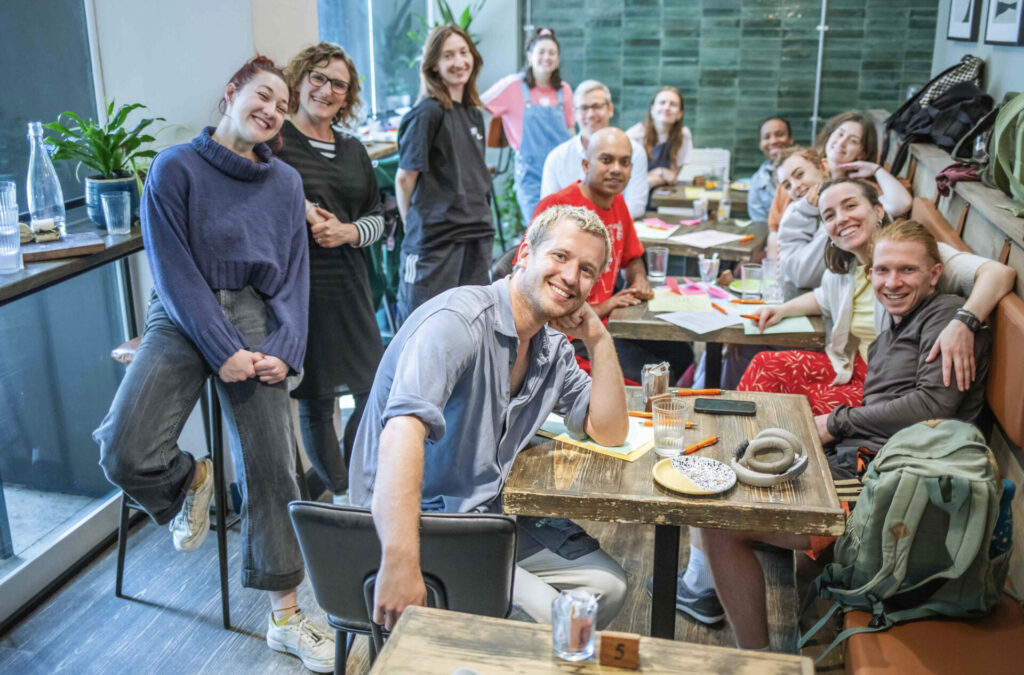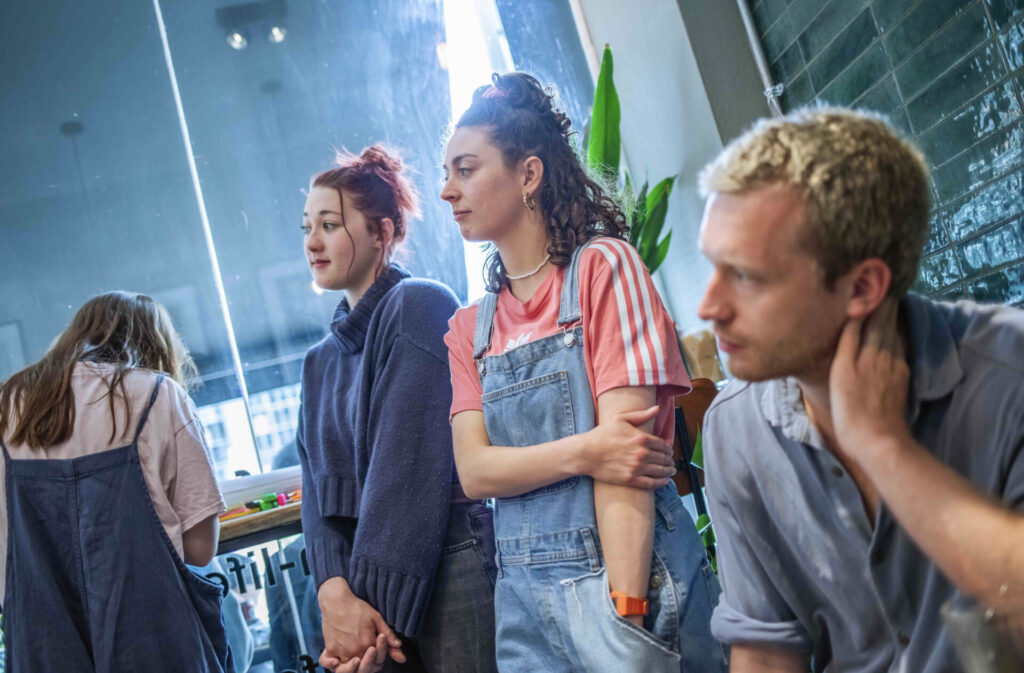
BDN has been working with dance artists based in the West Midlands to establish a dancers’ co-operative, supporting professionals to access space, training and jobs. It’s an idea that’s never been tested in the Midlands, and it’s something we’re really excited to be initiating.
Birmingham is brimming with creative talent, and those toiling at the grindstone of the city’s creative yield are freelance artists. With the Commonwealth Games and Birmingham 2023 bringing in big bucks for the cultural sector together with the City Council’s commitment to Birmingham as a ‘festival city’, you could say the city looks and feels more vibrant than ever. This proliferation of creative production hasn’t bypassed the dance sector, and here at BDN we’re delighted to see so many dance professionals choosing to live, train and work in the region.
However, it hasn’t always been that way, and there’s still a long way to go before Birmingham really fulfils its potential as an international centre for dance.
Some of the challenges we face are harder than others and are part of an important national conversation about the industry. As an artist-led organisation, we have been thinking a lot about structural problems that disproportionately affect self-employed artists. And the problem we just keep coming back to is funding structures. Structures that perpetually hold freelancers at the behest of arts organisations, who themselves dedicate millions of pounds to serve the cultural agendas imposed upon them by funding bodies. As admirable and well-intentioned as funding criteria often are, what’s created is a trickle-down structure that leaves freelancers with little in terms of individual resources, support, or artistic freedom. The system inflicts significant financial restraints on self-employed artists, and in a sector where the average yearly income is £12,000, having a long-term career is only truly accessible to those who can afford it through personal or family wealth, alongside top-drawer networking skills. This funding structure also forces artists into direct competition with each other, vying for the same tiny pots of cash and support that only a few individuals can ever benefit from.
It is in this context that conversations started at BDN around how we as individual artists can work together to bypass the structures imposed upon us and create more equitable access to funding, space, training and jobs. We opened that conversation up to dance artists in the region, working together to research models that allow individuals to act collectively for mutual benefit. In other words, how can we identify the things we all want and need as dance artists, and then work together to access those things on a grand scale?
BDN secured investment funding from Birmingham Dance Hub in 2022 to explore different models and, facilitated by BDN, a core group of 12 dance artists have been developing the idea of a dancers co-operative based in Birmingham, the first of its kind in the region. Katie Albon, a self-employed dance artist living in Birmingham and one of the core members said “I think as freelancers you can feel quite lonely and it’s quite a hard place to be sometimes. A co-op would be something really exciting for dancers here because it’s a way of coming together and joining forces.” Holly Jones, another member of the research group added “We’re taking control and building a foundation to carry on into the future.”
The group hosted BDN’s July Social to introduce the idea of a dancers’ co-operative to other dance artists in the region and get some feedback. “The discussions were very encouraging with an overall feeling of positivity.” Another co-op member, India-Rose Cox, commented “It’s a really, really exciting project even just to start researching. I’m really hopeful for what we want to do to come to fruition.”
The co-op is in its very early stages and the main discussion has been around what their priorities should be and what membership costs and responsibilities look like. The group is searching for further funding to help them formally set up as a co-operative, find income streams and even source a space to use as a home. Soon, the co-op will be actively looking for new members to be part of this journey and help form a brand new powerhouse of dancers in the region.
For more information on the co-operative or if you’re interested in getting involved, contact BDN’s co-director Karen Wood.
For those who are new to the idea of a co-op or what the benefits might be, here’s a quick rundown:
What is a co-operative?
A co-op is a business or organisation that’s owned and controlled by its members, to meet their shared needs. The members can be its customers, employees, residents or suppliers, who have a say in how the co-op is run.
Every co-op across the world shares the same co-operative principles and values.
How is a co-op different from other types of business?
Co-ops are owned by the people closest to the business, not distant investors only interested in a financial return. These are typically the workers, customers or local community. This means co-ops focus not just on making a profit, but on how they made it and what they do with it to bring value to their members and community.
(This information is from Co-operatives UK)
How is BDN involved in the co-op?
BDN has instigated the idea of setting up a co-op by bringing together artists to discuss how they can work together to have greater access to funding, space, power and autonomy. We have fundraised to allow time for research and have facilitated meetings of the group. In future, the co-op will operate without the facilitation of BDN but we fully intend to be members of the co-op as individual artists.
